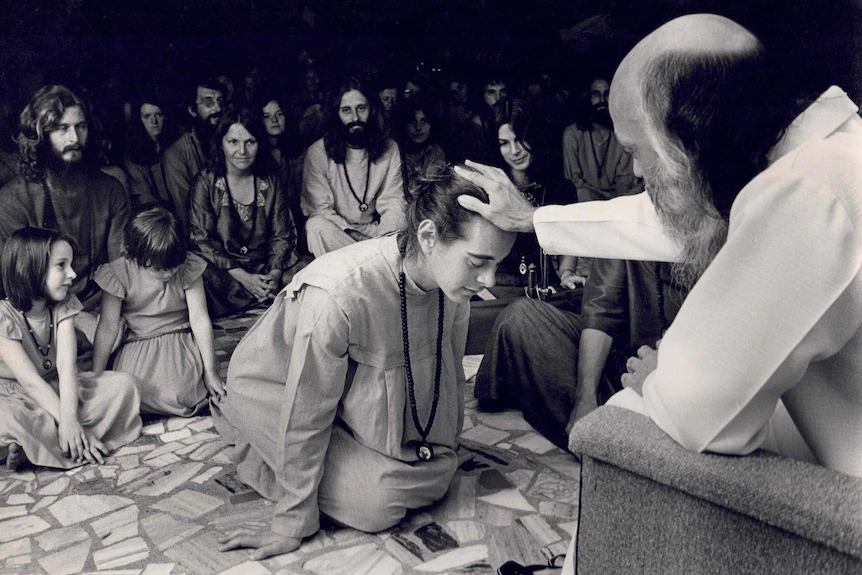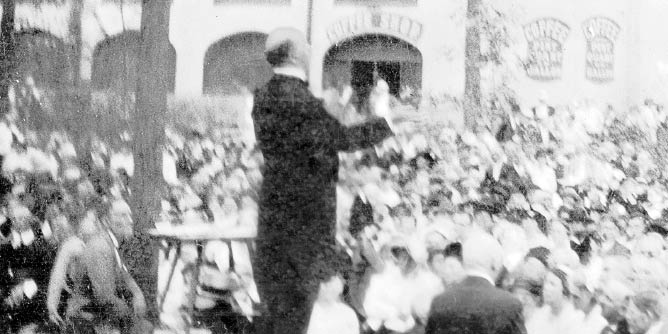For any JWs who may still be reading this thread...
Perhaps the words of Thomas were not inspired, but it is very noticeable that John, who was inspired (writing under the influence of the Holy Spirit), used them as a climax to all that he had previously written. It is noticeable too that there was no rebuke from Jesus to Thomas for saying these words. What Jesus did say, which can only be interpreted as an acceptance of the confession that Thomas made, was: “Thomas, because thou hast seen me, thou hast believed: blessed are they that have not seen, and yet have believed.” John 20:29 John began his Gospel with the confession that Christ is God (John 1:1). He brought it to a conclusion in exactly the same way. It is just as though he is saying to his readers: “After studying the evidence I have provided in my Gospel, what else can we do except to confess, as did Thomas, that Jesus is “My LORD and my God”. Note that at John 1:1 and 20:28, the word “God” is translated from the Greek word theos. It was immediately after writing about this admission of Thomas that John wrote “And many other signs truly did Jesus in the presence of his disciples, which are not written in this book: But these are written, that ye might believe that Jesus is the Christ, the Son of God; and that believing ye might have life through his name.” John 20:30-31 It appears therefore that John used the confession of Thomas, also the response of Jesus to the words of Thomas, as one of these signs. This certainly brought his Gospel to its climax. Throughout his Gospel, John repeatedly makes reference to Christ as being the Son of God. He also cites Jesus as continually speaking of God as His Father. This is the golden thread that runs through his Gospel from beginning to end. The terminology the Son of God therefore is the equivalent of saying that Christ is God. The question remains though: How could Christ, in His pre-existence, be God, yet at the same time be with God? (John 1:1). Is He the same God as He was with (the Father) or is He a different God? The answer is found in Christ’s relationship to God – meaning in His Sonship.
Begotten of God
For Christ to be the divine Son of God He must be begotten (brought forth) of God. If He is not begotten (brought forth) of God then He can neither be a true Son nor truly God. Everything depends upon His Sonship to God. If Christ is deprived of His true Sonship then He is deprived of His true Godship (Godhood). John wrote in the prologue to his Gospel “And the Word was made flesh, and dwelt among us, (and we beheld his glory, the glory as of the only begotten of the Father,) full of grace and truth.” John 1:14 “No man hath seen God at any time, the only begotten Son, which is in the bosom of the Father, he hath declared him.” John 1:18 John later wrote (relating the conversation that Jesus had with Nicodemus) “For God so loved the world, that he gave his only begotten Son, that whosoever believeth in him should not perish, but have everlasting life.” John 3:16 “He that believeth on him is not condemned: but he that believeth not is condemned already, because he hath not believed in the name of the only begotten Son of God.” John 3:18 Amongst various scholars there is a consensus of opinion that the words found in the above two verses were not spoken by Jesus. This is because these scholars regard Christ’s conversation with Nicodemus as ending at verse 15. Whilst I am not going to debate this issue here, it is true to say that whichever way this is viewed, it does not detract from the fact that the Holy Spirit inspired John to write these words. This means that even if they were only John’s comments, they are as true as if Jesus Himself had spoken them. This author takes the view that Jesus did speak these words. John also wrote in one of his pastoral letters “In this was manifested the love of God toward us, because that God sent his only begotten Son into the world, that we might live through him.” 1 John 4:9 On two occasions with His own voice, God confirmed Christ’s Sonship to Himself. The first was at the baptism of Jesus. The second was at His transfiguration “And lo a voice from heaven, saying, This is my beloved Son, in whom I am well pleased.” Matthew 3:17 “While he yet spake, behold, a bright cloud overshadowed them: and behold a voice out of the cloud, which said, This is my beloved Son, in whom I am well pleased; hear ye him.” Matthew 17:5
From the above it can be seen that this Sonship was not because of Christ’s human birth at Bethlehem but because of His pre-existent relationship with God. To put it another way: According to the Word of God, Christ had a pre-existent Sonship.
Monogenes: John describes Christ as “the only begotten of the Father” (John 1:14), “the only begotten Son” (John 1:18, 3:16), “the only begotten Son of God” (John 3:18) and God’s “only begotten Son” (1 John 4:9). On each occasion the Greek word translated “only begotten” is μονογενής (monogenes). John is the only Bible writer who uses this word with respect to Jesus. He uses it each time to denote the unique relationship between God and Christ (a father/son relationship). Luke and Paul used it in exactly the same manner (a parent/child relationship) although not with respect to Christ (Luke 7:12, 8:42, 9:38 and Hebrews 11:17). The basic meaning of monogenes is the only one of a generated kind or type. Applied to a child it generally means a parent’s only born son or daughter (of sole descent, without siblings). Some maintain that monogenes (an adjective) does not contain the idea of begetting. They say it only means unique. This view though, particularly in the light of how this word was used by those whose mother tongue was Greek, appears to have very little foundation. I am thinking primarily of those who formulated the creeds of Nicaea and Constantinople etc. The Creed of Nicaea (AD 325) begins by saying “We believe in one God, the Father almighty, maker of all things visible and invisible; And in one Lord, Jesus Christ, the Son of God, begotten from the Father, only-begotten [monogenes], that is, from the substance of the Father, God from God, light from light, true God from true God, begotten not made, of one substance with the Father, through Whom all things came into being, things in heaven and things on earth,…” (Creed of Nicaea AD 325) By those who formulated this creed, Christ is said to be the “only-begotten” (monogenes) of the Father. This is exactly the same as say the Scriptures. This is why the creed also says that Christ is “begotten from the Father”, also “begotten not made”. In his Gospel, John clearly says that Christ is the only-begotten (monogenes) of God. The Greeks knew exactly what was meant by monogenes (μονογενής). In this creed it is contrasted with being made or created. The word translated “begotten” in these two clauses is the participle γεννηθέντα. It means literally begotten or born. It is very difficult to believe that the people who formulated this creed did not understand their own language. As recently as the 1980’s, the English Language Liturgical Commission (ELLC) completed a translation of the Nicene Creed. This new translation is said to be truer to the original Greek than many other English translations. The whole purpose of the ELLC is to translate as accurately as possible the various creeds and prayers etc. Their recent translation of the Nicene Creed says “We believe in one God, the Father, the Almighty, maker of heaven and earth, of all that is, seen and unseen. We believe in one Lord, Jesus Christ, the only Son of God, eternally begotten of the Father, God from God, light from light, true God from true God, begotten, not made, of one Being with the Father; through him all things were made”. (English Language Liturgical Commission, ‘The Nicene Creed’, ‘Praying Together’ page 9, 1988) It does appear that although the word begotten with reference to Christ was omitted from such as the Weymouth (1903) and Moffatt (1913) translations, the main thrust of doing this came in the late 1940’s/1950’s. This was with the publishing of the Revised Standard Version (RSV). John 3:16 is translated as “For God so loved the world that he gave his only Son, that whoever believes in him should not perish but have eternal life.” John 3:16 RSV In principle, the thought that God did give His only Son is still preserved, but the word begotten, as in the KJV, is not included. This began a stir amongst many theologians. One though, a well-known Baptist minister (and Professor of Theology) by the name of Dale Moody, gave it his full support. Since then, many other modern translations such as the English Standard Version, the New International Version and the Holman Christian Standard, have followed suit. Some translations, like the latter two translations, have “one and only Son”. Interestingly, the Complete Jewish Bible renders John 3:16 as “only and unique Son” whilst Green’s Literal Translation, first published in 1985, has “only begotten Son”. The latter translation, for its Greek of the New Testament, used the Textus Receptus – as did the translators of the KJV. Why though, if John simply wanted to say one or one and only, did he use monogenes? I ask this because the Greek word monos means one or one and only (alone). He must therefore have had a specific reason for using monogenes (mono + genes). Some say that monogenes means unique, but this would not necessarily convey the idea that a child is the only begotten. This is because the child could have 5 brothers – all of whom have dark brown hair. He though (the monogenes child), if he had fair hair, would be unique. He would not be though the only-begotten.
To be continued....












